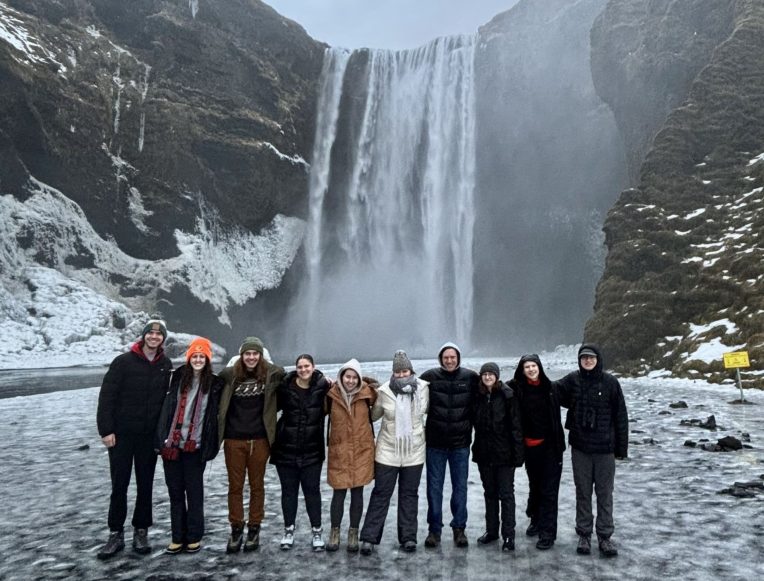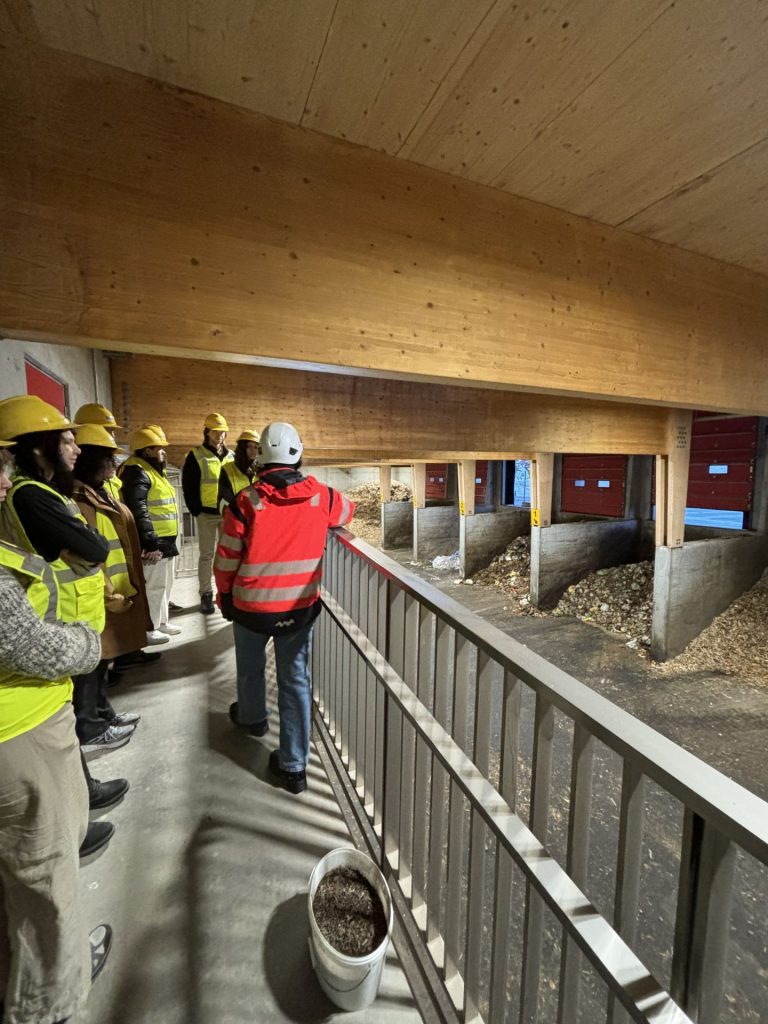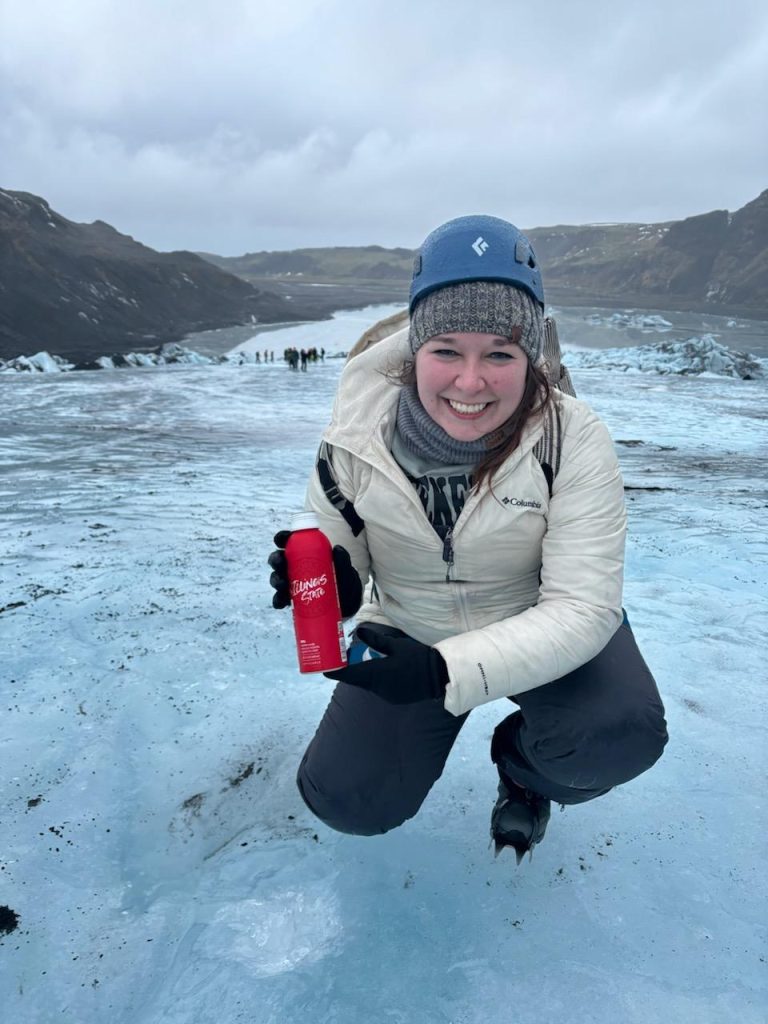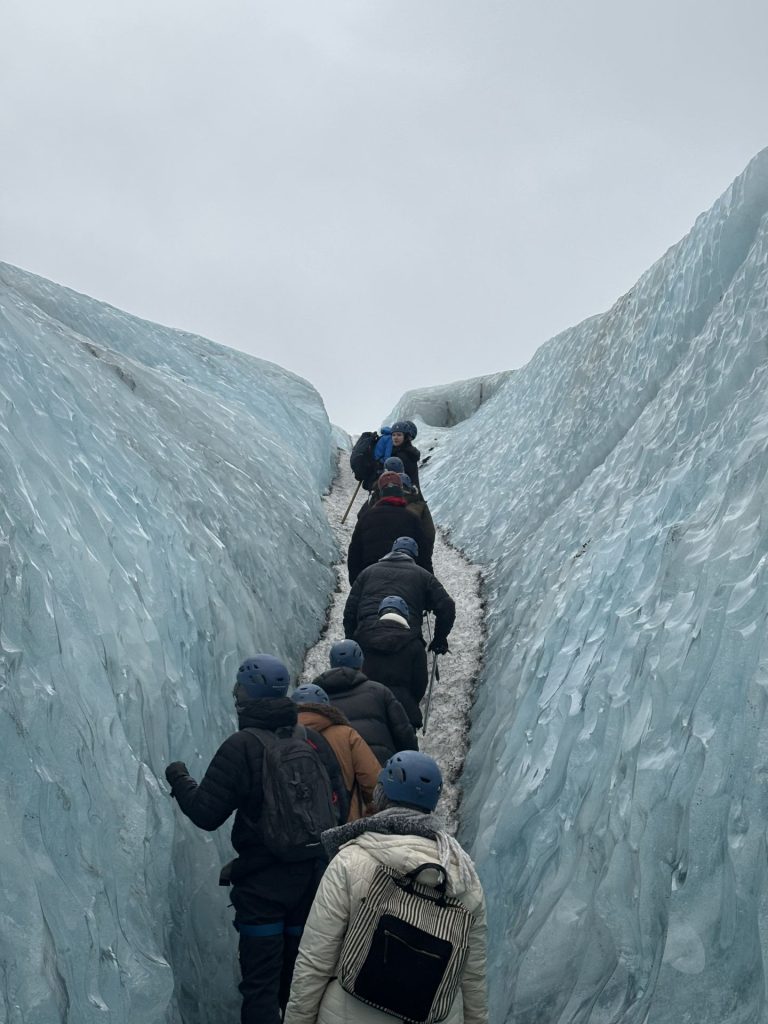A group of 10 Illinois State University students participated in the Sustainable City Tour to Reykjavik, Iceland, for a week over winter break. The Sustainable City Tour, organized by the Office of Sustainability, is a program that enables students to learn about sustainability from the most sustainable cities in the world. Reykjavik is the second city of the program as students also travelled to Zurich, Switzerland in May 2023.
All students attending the Sustainable City Tour to Reykjavik had a keen interest in sustainability but came from a variety of majors across campus including environmental system science and sustainability, biological sciences, communication, cybersecurity, and college student personnel administration.
“No city or country is 100% perfect or sustainable, but we can learn from countries such as Iceland that are using their natural resources in a smart, efficient, and responsible way,” director of the Office of Sustainability and the Sustainable City Tours program Elisabeth Reed said. “The intention for the students on these trips is to be inspired by all they have experienced and to use this knowledge to create positive change back here on campus or wherever they may work or live after graduating.”
Geothermal energy was a particular focus of this trip as it is a renewable energy that Iceland can produce due to the abundance of hot and accessible underground water from the volcanic and glacial terrain. Students learned about this renewable energy source while they toured the Geothermal Exhibition in the Hellisheiði power plant which primarily supplies power to the aluminum refineries in Reykjavik.
Iceland utilizes its abundant amount of renewable energy to provide electrically lit greenhouses all year long to grow various fruits and vegetables, such as tomatoes, leafy greens, strawberries, and even bananas every day of the year despite long, dark, and cold winters. While on the tour, students got to enjoy lunch at the Friðheimar Greenhouse where approximately 40% of Iceland’s tomatoes are grown.
The group also visited with Green by Iceland, an organization that serves as “a platform for cooperation on climate issues and green solutions between Iceland and international counterparts,” and with SORPA, the country’s waste management company. Students learned about Iceland’s goals toward dramatically reducing landfill waste while they visited the large compost facility. The group was able to see both the aerobic and anaerobic digestion systems SORPA utilizes to divert landfill waste into compost and energy.
The highlight of the trip was hiking the Sólheimajökull Glacier. Students strapped on crampons to their hiking boots and followed a guide through the ice and volcanic ash to the top of the glacier, stopping on the way to fill up their reusable bottles with arctic cold glacier water. Students were able to experience firsthand the effects of climate change in action, as the group observed how much the glacier retreated over the last 10 years.
“Going to Iceland was an amazing experience. It gave me the opportunity to learn more about geothermal energy and to question why we don’t try to harness that energy ourselves in certain areas in the states. Overall, the trip was educational and offered lots of opportunities for new experiences; my favorite being the glacier walk,” said graduate student and the group’s trip leader Kat Johns.
Although the trip was sustainability focused, the group also had opportunities to learn the history of Reykjavik, enjoy traditional Icelandic food, and bathe in the natural thermal baths. The students experienced a traditional Icelandic rye bread baking process in which the bread is baked in the warm ground for 24 hours.
The next Sustainable City Tour is scheduled to visit Singapore City from June 3-13, 2024. The registration deadline is February 2, 2024. Visit the Office of Sustainability website to learn more.




